Test Bank For An Introduction to Psychology, International Edition 4Th Edition by Jeffrey Nevid
Chapter 3 Sensation and Perception
MULTIPLE CHOICE
- 1. The process by which we receive, transform, and process stimuli is:
a) sensation.
b) perception.
c) transduction.
d) reduction.
e) psychophysics.
ANS: a TOP: MOD: 3.1 REF: Sensing Our World: Basic Concepts of Sensation MSC: factual
KEY: Identify
- 1.In contrast to sensation, perception involves:
a) converting external stimulation intro signals the brain can use.
b) channeling sensory information to the appropriate part of the brain for processing.
c) converting sensory information into meaningful representations of the world.
d) transforming information from the sensory organs to the brain.
e) converting external stimulation into action potential.
ANS: c TOP: MOD: 3.1 REF: Sensing Our World: Basic Concepts of Sensation MSC: conceptual
OBJ: 1-Explain the difference between sensation and perception. KEY: Evaluate/Explain
- 1.In the process of perception, the brain:
a) senses the presence of objects in the world.
b) produces experiences of vision, hearing, and so on.
c) forms meaningful impressions by integrating sensory information.
d) transforms sensory signals into sensations.
e) converts external stimulation into neural signals.
ANS: c TOP: MOD: 3.1 REF: Sensing Our World: Basic Concepts of Sensation MSC: conceptual
OBJ: 1-Explain the difference between sensation and perception. KEY: Evaluate/Explain
- 1.In the process of sensation, the brain:
a) makes sense of external stimulation.
b) assembles information from various sensory organs into meaningful patterns.
c) forms meaningful representations of sensory information.
d) transforms sensory stimuli into sensations.
e) interprets the meaning of sensory data.
ANS: d TOP: MOD: 3.1 REF: Sensing Our World: Basic Concepts of Sensation MSC: conceptual
OBJ: 1-Explain the difference between sensation and perception. KEY: Evaluate/Explain
- 1.The process of sensation enables us to _________, where the process of perception enables us _________.
a) sense the world around us; make sense of the world around us
b) make sense of the world around us; sense the world around us
c) form meaningful representations of sensory information; experience the rich tapestry of colors and sounds
d) transform sensory signals into sensations; convert external stimulation into neural signals
e) convert external stimulation into neural signals; transforms sensory signals into sensations
ANS: a TOP: MOD: 3.1 REF: Sensing Our World: Basic Concepts of Sensation MSC: conceptual OBJ: 1-Explain the difference between sensation and perception. KEY: Evaluate/Explain
NOT: WWW
- 1.Psychophysics began with the work of which nineteenth-century German scientist(s)?
a) David Hubel and Torsten Wiesel
b) Hermann von Helmholtz and Ewald Hering
c) Wilhelm Wundt
d) Ernst Weber
e) Gustav Fechner
ANS: e TOP: MOD: 3.1 REF: Sensing Our World: Basic Concepts of Sensation MSC: factual
KEY: Identify
- 1.Graduate student Shalanda Huffman studies how physical sources of stimulation relate to the physical experience of these stimuli. Huffman’s field of study is called:
a) subliminal perception.
b) perception.
c) parapsychology.
d) psychophysics.
e) sensory adaptation.
ANS: d TOP: MOD: 3.1 REF: Sensing Our World: Basic Concepts of Sensation MSC: applied
OBJ: 3-Define psychophysics. KEY: Define/Describe, Apply
- 1.Psychophysics is defined as the study of:
a) the relationship between the characteristics of external stimuli and sensations.
b) human perception.
c) the relationship between physics and psychology.
d) perceptual disorders.
e) sensory disorders.
ANS: a TOP: MOD: 3.1 REF: Sensing Our World: Basic Concepts of Sensation MSC: factual OBJ: 3-Define psychophysics. KEY: Define/Describe NOT: WWW
- 1.A psychologist, Dr. Rhonda Somblay, conducts studies of psychophysics. She is most likely studying:
a) how the intensity of a stimulus affects sensations.
b) how the brain pieces together sensory data to form meaningful perceptions.
c) how stimuli are converted by sensory receptors into neural signals.
d) the relationship between psychology and physics.
e) the process of sensory adaptation.
ANS: a TOP: MOD: 3.1 REF: Sensing Our World: Basic Concepts of Sensation MSC: applied OBJ: 3-Define psychophysics KEY: Define/Describe, Apply
- 1.Dr. Andrew Lee is conducting an experiment to determine how different intensities of light affect the sensations these stimuli produce. The field of study he is exploring is called:
a) psychomotor processing.
b) physiopsychology.
c) psychophysics.
d) luminopsychology.
e) psychological adaptation.
ANS: c TOP: MOD: 3.1 REF: Sensing Our World: Basic Concepts of Sensation MSC: applied
KEY: Identify, Apply
- 1.An absolute threshold is:
a) the smallest amount of a stimulus that a person can reliably detect.
b) the maximum amount of a stimulus a person can tolerate.
c) the amount a stimulus must change for a person to detect a difference.
d) an amount of a stimulus so small, it is unable to be perceived.
e) an amount of a stimulus beyond what a person can tolerate.
ANS: a TOP: MOD: 3.1 REF: Sensing Our World: Basic Concepts of Sensation MSC: factual

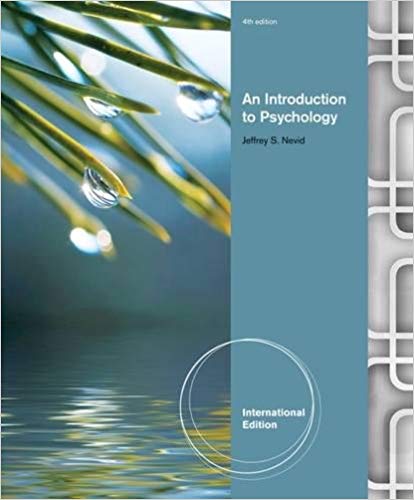
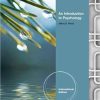
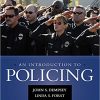
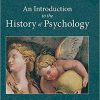
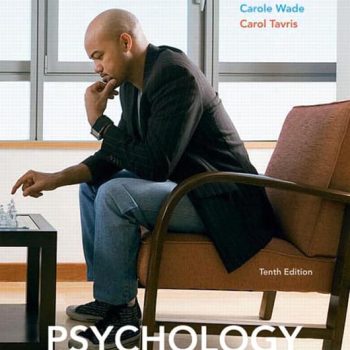
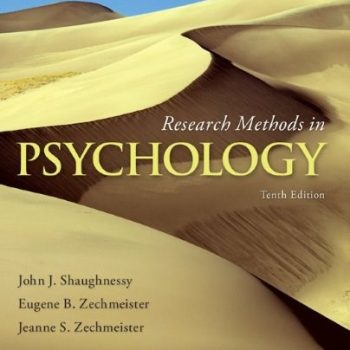

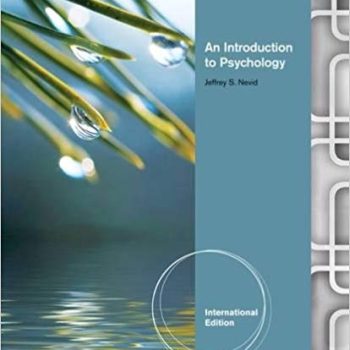
Reviews
There are no reviews yet.